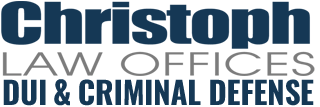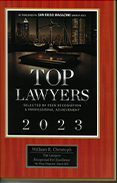Drug testing checkpoints may be in California’s future
Alcohol testing checkpoints have become familiar to California drivers. Generally, to perform a traffic stop an officer must have probable cause the driver is about to commit or is currently committing an illegal act. The state has made an exception to this rule, however, for sobriety checkpoints. Under state law, police are allowed to stop drivers briefly at checkpoints, without any probable cause, to check for alcohol use if:
- Supervising officers are on site and make operational decisions
- The checkpoint is in a reasonable location
- Officers use “good judgment” regarding the time and duration of the stop and the stop is of minimal duration
- Checkpoints are publicly advertised in advance
Twist on checkpoints this past New Year’s Eve
As part of its planned checkpoints last New Year’s Eve, Los Angeles police also included a voluntary cheek swab option that would detect for impairing substances, both legal and illegal, a driver may have used before getting behind the wheel. It is against the law to drive impaired under any substance, from prescription pills and medicinal marijuana to heroin and meth.
If a driver is arrested on suspicion of drunk driving or driving under the influence, California’s “implied consent” law makes it mandatory for that driver to submit to a blood test. Refusing to do so can result in increased penalties like fines, license suspension and possible jail time. However, constitutionally it is a problem for law enforcement to force a driver to submit to a cheek swab at a checkpoint to check for drugs without consent.
Currently, no evidence from a cheek swab has been introduced as evidence in California to convict a driver of DUI. However, according to one city attorney, police and prosecutors are increasingly focused on drugged driving prevention and cheek swabs may become a bigger part of that effort in the future. The technology must be proven and accepted as well as clearing other constitutional hurdles before it becomes an accepted procedure.
Probable cause and constitutional rights
Courts across the state have held that California has enough of a legitimate interest in keeping its roads safe to conduct brief stops to check for drug and alcohol use. However, that does not give officers the freedom to violate a driver’s constitutional right to be free from unreasonable searches and seizures.
Because a DUI conviction carries severe and consequential penalties, Californians who have been arrested on suspicion of DUI should contact an experienced criminal defense lawyers near me to ensure their rights are protected throughout all legal proceedings.







